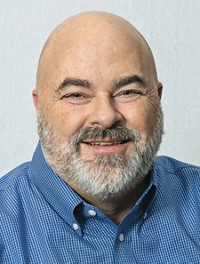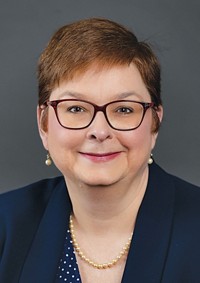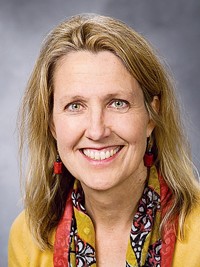Advertisement
Grab your lab coat. Let's get started
Welcome!
Welcome!
Create an account below to get 6 C&EN articles per month, receive newsletters and more - all free.
It seems this is your first time logging in online. Please enter the following information to continue.
As an ACS member you automatically get access to this site. All we need is few more details to create your reading experience.
Not you? Sign in with a different account.
Not you? Sign in with a different account.
ERROR 1
ERROR 1
ERROR 2
ERROR 2
ERROR 2
ERROR 2
ERROR 2
Password and Confirm password must match.
If you have an ACS member number, please enter it here so we can link this account to your membership. (optional)
ERROR 2
ACS values your privacy. By submitting your information, you are gaining access to C&EN and subscribing to our weekly newsletter. We use the information you provide to make your reading experience better, and we will never sell your data to third party members.
Careers
Communities In Chemistry
Reaching out to other chemists and to the public will strengthen our profession
by Donna J. Nelson
January 4, 2016
| A version of this story appeared in
Volume 94, Issue 1
Members of the American Chemical Society know that the organization is the world’s largest scientific society, that it is highly respected, and that it is highly valued. However, it’s more than that to me. I view ACS as a giant community, with smaller communities inside. For example, each committee is a community, and so is each technical division and local section. The work I’m doing with ACS on jobs, chemical education, and diversity enables strengthening additional communities of members within the society. Some communities and their needs are reflected in my presidential programming for the ACS national meeting in San Diego in March. Some of these communities are progressing well, some need a little more time to reach their full potential, while others are dispersed and must consolidate in order to network better.
MEET DONNA NELSON
With interests spanning carbon nanotubes, diversity, education, employment, and the public’s appreciation for science, Donna J. Nelson is sure to have a busy tenure as ACS president in 2016.
Nelson earned a B.S. in chemistry at the University of Oklahoma and a Ph.D. in chemistry at the University of Texas, Austin. After postdoctoral work at Purdue University, she joined the faculty at the University of Oklahoma, where she is now a professor of chemistry. She has served as a visiting professor at Massachusetts Institute of Technology; the University of California, San Diego; and UT Austin.
Her scientific research centers on characterizing functionalized single-walled carbon nanotubes (SWCNTs). Nelson uses NMR to examine the effects of substituents on the tubes’ reactions and associations with a variety of classes of organic molecules, such as alcohols, amines, ketones, aldehydes, and nitro compounds. By doing this, she pioneered the application of NMR to functionalized and pristine SWCNT characterization and analysis.
A member of ACS since 1976, Nelson has served the society in a number of positions, including as past chair of the Oklahoma Section. She is an ACS Fellow as well as a fellow of the American Association for the Advancement of Science. Her other honors include a Guggenheim Fellowship, a Fulbright Scholarship, and a Woman of Courage Award from the National Organization for Women.
Community building within ACS is a major theme of my three-year term. However, building stronger community ties mustn’t end at the borders of ACS. Outreach beyond the society will be another key theme—finding ways to inspire public appreciation for science and scientists in order to increase funding and ultimately ease unemployment. Realistically, this will be a slow and incremental process. But I believe it’s doable, and with your help, we can achieve progress.
However, your participation in this bridging to the public is critical. We all know many members are enthusiastic and dedicated to ACS. We know that ACS is a valuable organization, and we feel a strong connection to it. That commitment is powerful, and it can help drive change. I ask each of you to help make that change happen.
JOBS IN CHEMISTRY
While running for president-elect, I e-mailed all ACS members four times, asking them to identify problems they wanted addressed. More than 1,600 members contacted me, and most identified employment in the chemical sciences—and, more specifically, a lack of jobs—as the greatest current problem for our community. Many believe that unemployment is most challenging for new chemistry graduates, and ACS’s annual surveys confirm this perspective. Although ACS can’t directly create new jobs, we can identify, study, and address factors that stifle employment.
In order to address your request, I assembled a task force on employment in the chemical sciences last year. It includes representatives from ACS committees that have studied different aspects of this challenge for years. Past and future ACS leaders are also participating. For instance, the task force includes past-presidents who had their own task forces on jobs, such as Attila Pavlath and Marinda Li Wu. Upon Bryan Balazs and Allison Campbell being named as candidates for 2016 ACS president-elect, I invited them to work with me, and both joined the task force. During last year’s election, each of them talked about the importance of the jobs problem. Upon being announced as president-elect, Allison Campbell assured me that she will be happy to take over this task force when the time comes. So, this effort will be continuous across multiple ACS presidencies. The task force hears a wide range of guest speakers, receives input from additional ACS members via e-mail, and will have guidance from a community of ACS presidents and other members who are knowledgeable about and committed to improving this situation.
Also, speed in solving professional issues can be important to ACS members, so I focused on agility. For example, when I solicited ideas during my campaign, overseas ACS members e-mailed me requesting more contact with other ACS members inside their own countries. Upon being elected, I asked Bradley Miller, director of the ACS Office of International Activities, if this contact could be effected easily. He immediately facilitated their networking.
Similarly, being qualified for a job in chemistry, and yet being without a job, can be a dire and disappointing situation. Therefore, I asked the jobs task force to focus on implementing solutions rapidly—not merely studying, analyzing, and identifying solutions. Looking for low-hanging fruit, this task force examined final reports from earlier task forces. Those reports suggested some ways by which unemployed chemists could mitigate the problem, such as applying for jobs in some chemistry-related scientific areas that had excess openings. However, these areas change somewhat quickly, so it is not practical to develop educational programs for them. Therefore, a solution is to caution future young chemists that they must build flexibility into their study programs, their employment area expectations, and their job search techniques. We will continue to search for solutions to implement swiftly, as we go along, rather than hold them for a report.
Sometimes our communities feel that they must compete against each other for jobs in chemical sciences. For example, one community comprises members who were born abroad but work in the U.S. Some U.S.-born members are concerned about the impact of these immigrant chemists on an already weak domestic job market. However, analyzing this must consider that our country needs immigrants. The U.S. birthrate is insufficient to sustain our population without immigration. Otherwise, insufficient workers would have to support an increasingly aged (retired) population and the overall economy—too many retirees being supported by contributions from too few workers. Therefore, we need immigration to help our country thrive, to support an aging populace, and to help maintain our standard of living. Overall, we have been fortunate that so many people continue to want to come to the U.S., and that we can continue to attract and select the smartest and the strongest of them to join us. Not all countries have this benefit. This is one of many considerations to include among the complex effects that impact employment in our communities.
The task force will examine and consider all known influences that can impact employment in the chemical sciences. One goal is to hear opinions from everyone. We know that mergers and outsourcing have decreased the number of jobs for chemists. In addition, a decline in government funding has adversely impacted the nation’s innovation infrastructure that traditionally served as a source of job creation and revenue growth. Finally, the media does not always present us in optimal ways. However, scientists are still mostly viewed as dedicated and reliable, so we should be able to impact perceptions of science positively, if we choose to do so. Such influences will be addressed in detail in a presidential symposium at the ACS national meeting in San Diego in March.
Each presidential symposium at the meeting will include a panel discussion, with the opportunity for speakers and members of the audience to pose questions to each other. Therefore, I urge you to attend and participate in a lively dialogue with panelists and other audience members. In another break with tradition, I invited all ACS members to contribute papers to presidential poster sessions at the ACS spring national meeting this year. ACS members will be able to interact with authors and other attendees during these poster sessions. Both panel discussions and poster sessions are formats intended to help build community within our society.
SUPPORT FOR CHEMISTRY
As we search for ways to improve employment for chemists, we also must strengthen ACS’s interactions with the public and with government representatives because these are intertwined. Years ago we realized it was important for the public to understand science better, and we worked to increase its comprehension. Now, more scientific information appears in many more places than it did before, such as TV, movies, and the press. We now need to inspire a goal that information about scientists and science is more accurate.
However, we also must influence the public to appreciate science, not merely understand it. This is a subtle but significant difference. We want the public to acknowledge the benefits that science provides and to support our efforts as scientists. We must continually make the public aware that most benefits they enjoy were brought to them by science and scientists. Our high standard of living has been made possible by science and scientists. Being appreciated, enhanced, and considered benefactors in our neighborhood communities will make our lives more enjoyable. As a secondary consideration, increasing public appreciation of science and scientists should lead to increased funding for research, as members of Congress and their constituents increase their appreciation for scientists and for our work.
ACS members can foster this appreciation and enhance the public perception of chemists in many different ways. For example, we can directly influence the public by having laypeople visit our university labs and industrial sites in order to make them more comfortable with us and our work. We can sway them indirectly via people who greatly influence our image. Those people range from Hollywood producers and actors to high school and undergraduate science bloggers. We should build bridges to these people and recognize that each communication with them is an opportunity to shape messages to the public about chemists and chemistry.
EDUCATION
As noted above, I view ACS as an assembly of communities. I first regarded instructors and students of organic chemistry as a distinct community inside the society after comparing the content of a variety of organic chemistry textbooks. Preparing for teaching a class, I recognized inconsistencies in the books’ content on cyclohexane conformers. This finding prompted thoroughly comparing this topic across all the two-semester comprehensive undergraduate organic chemistry textbooks in use at that time. This revealed discrepancies among different textbooks, as well as between the texts and the research literature. I invited organic chemistry students to participate in this study and in subsequent analogous ones on different organic chemistry topics. Each student brought a fresh eye to the project, which was particularly needed because the texts’ goal was to present the material to students in a way they would understand. Thus, representatives of the impacted community helped judge the texts. We published the findings in the Journal of Chemical Education (2015, DOI: 10.1021/ed500421j). Textbook authors and publishers embraced the work and revised their texts.
More recently, members of the organic chemistry community approached me with another set of concerns. At some universities, some departments such as biology and botany are reducing the amount of organic chemistry required for their majors. In addition, the recently revised Medical College Admission Test contains fewer organic chemistry questions than previous versions of the exam. Some ACS members wondered whether universities would consequently need fewer organic chemistry classes and fewer teaching assistants. Such cutbacks would reduce the number of graduate students to do research.
These questions inspired a symposium for us to discuss observations and opinions on these trends and possible responses. Please attend and give your perspective on organic chemistry education in the presidential symposium and poster session at the ACS spring national meeting in San Diego.
DIVERSITY
In addition to groupings based on fields of chemistry or forms of governance such as committees, subsets within ACS have coalesced around identities related to gender, ethnicity, scientific perspective, country of origin, or some other distinction. The diversity of these communities contributes to the strength of our organization as well as our profession. People from different backgrounds and different life experiences have different perspectives, and increasing the number of different perspectives in our society increases its creativity and ability to respond to challenges with a variety of possible solutions. However, the differences in opinion brought by our diversity can also bring conflict, if they are not recognized and appreciated.
My surveys determining faculty demographics in 15 different disciplines at research universities, disaggregated by race/ethnicity, by rank, by gender, and by discipline helped me understand our communities better. The data were obtained by surveying chairs of the top 100 departments, as ranked by the National Science Foundation according to research expenditures in chemistry, math, computer science, physics, astronomy, chemical engineering, mechanical engineering, civil engineering, electrical engineering, biological sciences, earth sciences, sociology, economics, political science, and psychology. Four times during 2001–12, we obtained complete populations (100% participation) in all disciplines, which enabled determining the status of even very small groups, such as female underrepresented minorities.
Advertisement
Our data were used as benchmarks by many types of organizations, such as funding agencies, universities, government offices, and professional scientific organizations. The findings empowered communities of underrepresented groups by providing them with the exact magnitudes of their representations. Data from the Nelson Diversity Surveys (as named by NSF) can be found via the Wikipedia page bearing that name.
CLOSING THOUGHTS
Chemists can help our nation grow, but they need jobs, government support, and public appreciation in order to do this. We have various daunting problems but no magic wand to remedy them overnight. One person’s solution might be another one’s problem. The important point is that we discuss the problems openly and work on them jointly in order to mitigate them. As president, I am reaching out to everyone to work together. I will interact continuously with the board, council, divisions, local sections, other ACS units, and mostly with you—the members. Each president’s term is only one year, but as others have done, I will work with my successors to ensure that this effort continues. I solicit your help to benefit our members, profession, and nation.






Join the conversation
Contact the reporter
Submit a Letter to the Editor for publication
Engage with us on Twitter